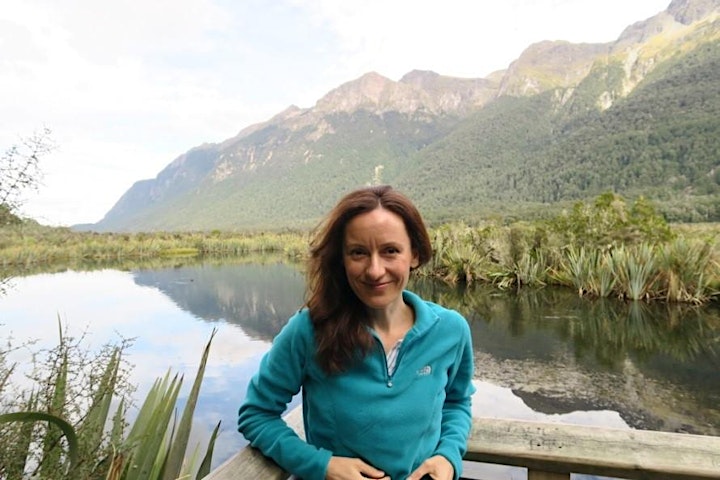CLER Conversation: Encountering the Other in Places of Stigma - Extending the Boundaries of Collaborative Language Education Research
- Date
- Thursday 29 June 2023, 16:00-18:00
- Location
- Hillary Place Coach House Seminar Room
"What is the possibility of encountering our neighbours in places that are historically, spatially, and morally configured to avoid them? And what, if anything, can language education research do to inhabit such a possibility?"
In this CLER Conversation, we share our experience and outcomes of collaborative working to explore this question. The project was supported by an Arts and Humanities Research Council grant: “Ethics and Aesthetics of Encountering the Other: New Frameworks for Engaging with Difference” (AH/T005637/1). Its data are inspired by an anthropological probe into communication practices in rural Slovakia with a history of conflict between its ethnic Slovak majority and its stigmatised and spatially segregated Roma minority. The country has had a complicated historical relationship with the ethnic and linguistic other (Kubátová & Laníček, 2018). Its social, education and language policies concerning the Roma minority have contributed to spatial segregation (Rusnáková & Rochovská, 2014), unequal educational outcomes for young people from Roma communities (Markovič & Plachá, 2020) and a systemic stigmatisation and erasure of Roma communities’ linguistic practices from schooling and public life (Hübschmannová, 1970; Kusá, 2016; Vašečka, 2003). Encountering the Other is at once an ethical demand (Erasmus, 2018; Levinas, 1998) and, in this context of separation, a political impasse. We use our combined disciplinary tools of sociolinguistics, education, poetry and art, not to analyse but to invite the audience into an encounter. We open up a conversation about the role for collaborative language education research that unsettles rather than cumulates knowledge.
Please click here to register.
Maggie Kubanyiova is professor of language education at the University of Leeds where she is Director of the Centre for Language Education Research. Her research interests cut across sociolinguistics, education, philosophy and arts. She has brought this interdisciplinary perspective to inform her research on language teachers’ development in multilingual settings, language learning opportunities in classroom talk, ethical dimension of multilingual interaction, moral and political dimensions of language teacher identity, and research ethics. Her current work is concerned with creating spaces for interdisciplinary collaboration across sectors to theorise, enable and enact ethical encounters across difference in education, everyday interactions and in research. She was a Principal Investigator of an Arts and Humanities Research Council project, Ethics and Aesthetics of Encountering the Other (ETHER), which examined ways in which people of diverse worldviews, backgrounds and future visions engage with their differences. She continues to work with educators, students, arts organisations, language activists, creatives and third sector organisations to pursue the practical consequences of these questions for individuals and communities.

Sophie Herxheimer is an artist and poet. She has held many residencies including for London International Festival of Theatre, The National Maritime Museum, The Museum of Liverpool and Transport for London. Her work has been shown at her local allotments, Tate Modern and on a giant mural along the sea front at Margate. She made a 300 metre tablecloth for the Thames Festival, a life size concrete poem in the shape of Mrs Beeton to stand next to her grave, and a pie on the lawn of an old people’s home big enough for seven drama students to jump out of, singing. Her collection Velkom to Inklandt (Short Books, 2017) was a Poetry Book of the Month in the Observer and a Sunday Times Book of the Year. Her latest book 60 Lovers to Make and Do, (Henningham Family Press, 2019) was a TLS Book of the Year. She has illustrated six fairy tale and mythology collections, most recently The Mighty Goddess, written by Sally Pomme Clayton, (The History Press, March 2023.) Her artists’ books are in The Bodleian Library and many public collections. She has an ongoing project where she listens and draws stories live with members of the public. Her latest collection is INDEX (zimZalla, 2021), a box of 78 collage poems, made from found text, published in a box as a deck of prophetic cards.

Anna Koptová, Director of the Foundation of the Good Romani Fairy Kesaj (Nadácia Dobrá rómska víla Kesaj), is one of the key figures of the Roma emancipation movement in Slovakia. She has co-founded and led significant cultural, educational and linguistic initiatives and institutions, including Romano ľil (1991), the first Romani magazine in Slovakia, Romathan (1992), the first and only Romani theatre company in Slovakia, and the first school that integrated Romani language and history within its core curriculum. As part of an international project Restoring the European Dimension of the Romani Language and Culture, her Foundation published the first Slovak-Romani dictionary (2011). She has translated numerous texts of French, Slovak and Czech prose and poetry into Romani, including Les Ursitory by Matéo Maximoff (2020), Romane paramisa/ Rómske rozprávky (Romani fairytales) by Milena Hübschmanová (2022) and Mangipena/Modlitbičky (Little Prayers) by the Slovak poet Milan Rúfus. In 2023, she was awarded the Order of Ľudovít Štúr, the highest state honour by the President of the Slovak Republic, Zuzana Čaputová, in recognition of her exceptional services to human rights.

